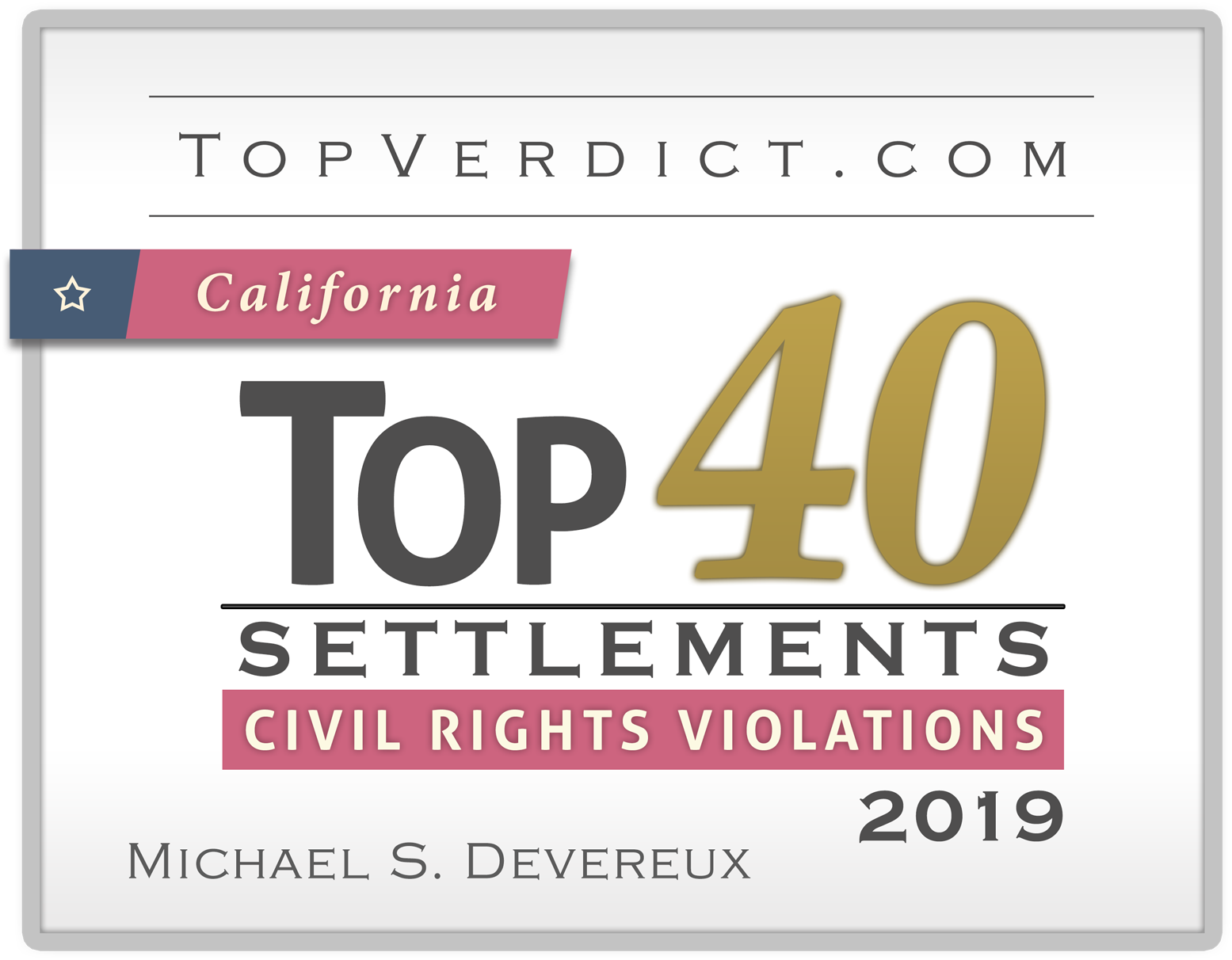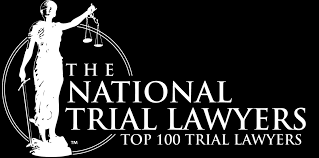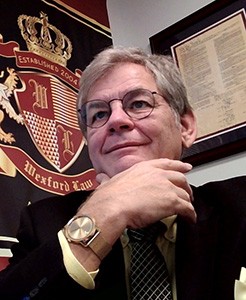Dignified, respected by judges, jurors and clients alike.
Happy Clients
Years of Experience
Criminal Cases
Civil Cases
FREE CONSULTATION
HONEST, KNOWLEDGABLE, INGENUITY, PASSIONATE,
TENACIOUS & FIERCELY PROTECTIVE OF CLIENT'S INTERESTS
Bold, aggressive, unstoppable - never, never, never quits
Capable of explaining complicated legal issues in simplest terms.
Wexford Law—Where Strategy Meets Success
Selecting the right attorney is not just about credentials—it’s about finding an advocate with the specific skills and knowledge required for your case. While you may know capable attorneys within your network, legal proficiency varies significantly across different practice areas. A trial attorney differs from a contract attorney; an estate attorney is not a criminal defense attorney; and corporate, immigration, civil, and bankruptcy law each require distinct expertise. The divide between state and federal legal practice is even greater.
For business owners, executives, and healthcare professionals, effective legal representation demands more than just a deep understanding of the law—it requires an understanding of your industry. Before becoming an attorney, Michael Devereux spent over two decades as a business and technology consultant across multiple sectors, including entertainment, energy, healthcare, defense, finance, real estate, and communications. This dual expertise in both law and business equips Wexford Law with the ability to craft precise, strategic legal solutions without the inefficiencies of a learning curve.
Prosecutors and large-firm attorneys often lack insight into industry-specific norms and standards—an oversight that can be costly when you are the target of legal scrutiny. At Wexford Law, we don’t waste time getting up to speed on your business. We already understand the regulatory and operational landscape of your industry, allowing us to build a strong, immediate defense.
When the stakes are high, you need more than just legal representation—you need an attorney who can seamlessly integrate legal strategy with business acumen. At Wexford Law, we provide exactly that.

Wexford Law: Precision, Strategy & Unmatched Advocacy
At Wexford Law, we combine legal expertise with strategic insight to deliver exceptional representation in both trial and appellate courts. Success in the legal arena is about more than just understanding the law—it requires mastery of courtroom dynamics, judicial interpretation, and persuasive advocacy. Led by Michael Devereux, a seasoned trial and appellate attorney with a track record of victories in high-stakes cases, Wex Law is committed to ensuring that every client is heard, defended, and positioned for the best possible outcome. Whether challenging a conviction, navigating complex litigation, or pursuing post-conviction relief, we bring a level of precision, tenacity, and legal acumen that sets us apart.
Testimonials
One of The Most Ethical Lawyers I’ve Ever Known...
Let me start by saying I am extremely pleased by Mr. Devereux's work, professionalism, and devotion to his clients. He was very honest and never made any false promises about the outcome of my case nor did he try to seek compensation further than our initial contract. I initially consulted and even hired other experienced attorneys but nothing got accomplished. Mr. Devereux worked on my case for over six months and was able to get my case dismissed which I was told by previous attorneys was impossible. My husband and I are forever grateful for his great work!
Brillant & Informative Attorney
Michael came to us when we were in crisis and had just lost 500k in an internet wire fraud hack job by criminals. He lightened us up with good information and follows up. Just a really nice good guy and easy to talk too.
Internet Extortion Case
When I thought my case was impossible, Michael came to the rescue. His knowledge of internet forensics is beyond impressive. I cannot thank him and his team enough for all of their hard work.
Great Attorney
Mr. Devereux and his firm did an outstanding job with understanding and handling my case. From the initial consultation on the phone, Mr. Devereux put me at ease that the situation could be taken care of. Let me just say that I'm not an educated man, but I do know how to treat people, and I know when someone has a good heart. I would like to personally thank Mr. Devereux for communicating with me constantly during the process, and for responding to my emails and/or phone calls in a very timely fashion. Thank you!!!!
Five Stars Isn't Enough...
When I had the good fortune to be represented by Mr. Devereux I was reminded that God does indeed work through others. I owe this man my life, literally. Everyone told me my case was hopeless, that I was a fool to take this to trial and this man had faith in me and his ability to give me a fair trial and ultimately an astounding new belief in humanity. Watching him in action was like watching a surgeon save a life.I believed he truly cared about me and my case. I can't thank him enough. Thank you Mr. Devereux!!
Super Lawyer beat the pants off the Prosecutor & the Judge-WINS unanimously in less than 40 minutes of Jury deliberation.
YES, I highly recommend Michael as a Super Lawyer. Michael took my case to the full jury trial because the issue was politically sensitive and he beat the pants off the Prosecutor. The prosecutor commented such and shook his hand at the end. Michael is a fact driven lawyer. He fights to WIN. Although the experience is troubling for anyone to have to go to court, Michael takes the burden away & off the client.
Michael Devereux: Experienced at Every Level of the Federal Court System
The federal court system is complex, operating on multiple levels—from district courts, where cases begin, to the circuit courts of appeal, and ultimately, the Supreme Court of the United States. Success in federal litigation requires more than just legal knowledge; it demands a deep understanding of federal procedures, judicial interpretation, and appellate strategy.
Michael Devereux has successfully litigated at every stage of the federal judiciary. From high-stakes trials in federal district courts to precedent-setting appeals before the Ninth Circuit and petitions to the U.S. Supreme Court, his expertise spans the entire system. Whether initiating writs of habeas corpus, navigating the intricacies of diversity jurisdiction, or challenging lower court decisions through interlocutory and en banc appeals, Michael brings a rare level of experience and strategic acumen to every case.
Federal litigation differs significantly from state court proceedings. Jurisdictional rules, evidentiary standards, and procedural nuances can determine the outcome of a case long before it reaches trial. With a background in business, technology, and complex regulatory matters, Michael understands not only the law but also the industries and clients he represents—ensuring a powerful, tailored approach to each case.
Few attorneys have the breadth of experience across all levels of the federal system. Whether facing criminal charges, appealing a conviction, or seeking post-conviction relief through a writ, Michael Devereux is equipped to navigate the highest levels of legal scrutiny with precision, insight, and unwavering dedication.
FAQ

Consider the following when choosing an attorney:
Comfort Level - Are you comfortable telling the lawyer personal information? Does the lawyer seem interested in solving your problem?
Credentials - How long has the lawyer been in practice? Has the lawyer worked on other cases similar to yours?
Cost - How are the lawyer's fees structured - hourly or flat fee? Can the lawyer estimate the cost of your case?
Appearance - Appearance isn’t everything, but people do judge a book by its cover. Studies have shown that your attorney's appearance affects perceptions of trustworthiness, intelligence, authority, and success. Appearance not only includes dress - but also presentation. How well does your attorney speak? Does the attorney have energy? Or is the attorney boring and uninteresting? How quickly will judges and jurors tune him/her out?
How long have you been in practice?
How many cases like mine have you handled?
How long can a case like mine take?
How often do you settle cases out of court?
What are your fees and costs?
What are the next steps?
Attorneys at smaller law firms typically have more hands on experience, the bonus of added courtroom experience and the benefit of advanced trial experience. In addition, attorneys in a small firm practice and are more knowledgable in a broad spectrum of law so they tend to be more innovated through recognizing multiple legal solutions quickly. They tend to think outside the box. The lawyer in a smaller law firm has more input in the process and management of your case. Moreover, typically the client gets to speak to the attorney directly. Besides the lower costs, the efficiently of a small firm is a benefit to its clientele.
We provide a free thirty-minute case evaluation. Even if you don't retain us afterwards, everything we discussed during the free evaluation is protected by attorney-client privilege.
Experts
in Their Fields
If you or your business is facing a legal challenge, contact us today to arrange a free initial consultation with an attorney.
No Better Team

.png)









